|
Imagine you’re sitting quietly in a meeting or religious services; suddenly your heart starts pounding. You feel like your blood is coursing through the veins in your arms and legs. It’s bewildering and scary: Why?! There is nothing about this setting that calls for such a reaction. Yet, you have this reaction. It is important that caregivers understand what leads to this reaction and what they can do about it.
It’s a “fight or flight response gone wrong. It developed when we had to run away from Saber Tooth Tigers. Our ancestors were successful, that’s why we’re here. Those ancestors passed down to us their methods of coping with their world. Our modern world doesn’t have the same kinds of stressors, especially for caregivers. Our stressors are less clearly defined And they last longer. Our stressors change shape; one minute we’re dealing with the house-the spouse-the kids-and-the job. Then there’s a crisis and we’re caregivers for Mom! From that point forward, our caregiving increases but with no way to know when the need will become greater or how long caregiving will last. Our bodies respond as our ancestors’ once did; we produce Cortisol to rise to this crisis. The process goes like this: Stress causes the Hypothalamus to secrete. That triggers the Pituitary Gland to secrete. The Adrenal gland secretes Cortisol. This process has several names: HPA Axis, HPA Cascade or Syndrome X, or AKA Insulin Resistive Syndrome. (Wouldn’t it be helpful if we could all agree on one name?) It’s not the crisis that’s the problem. It’s the crisis that doesn’t end that creates bad effects on caregivers. The effects show up in different ways. Cortisol encourages promotes fat deposits in the outer layer of the body, especially the waist. Some caregivers gain weight. We can measure this effect by doing a BMI (Body Mass Index). Other caregivers have different conditions; heart disease, Type-2 Diabetes and Stroke. We can measure Cholesterol levels through a C-Reactive Protein lab test. We can also do a cheek swab to check Cortisol level. However, how many doctors don’t even ask patients if they are caregivers. The tests are there but they are not used to evaluate identified caregivers at this time on a general basis. You need to ask for them. When our bodies rise to meet a crisis: they must also let down. Even Saber Tooth Tigers would give chase and then give up. The caregiver’s duties do not end the same way. In fact, they do not “end” unless we place some “ending points” into the caregiver’s life. That is the role of self care, to provide end points such as respite and small moments. That’s why it’s necessary to spread the caregiving load so it doesn’t fall on one person. That is why we need to enlist family to give caregivers this kind of support. Otherwise, the caregiver can be sitting quietly in religious services and the Cortisol response “alarms” for no exterior reason. We need to advocate for caregivers to be recognized in the medical arena. Learn more by taking our course; Preparing to Parent Your Parent.
0 Comments
This is the first of a three part series about the often-heard advice to caregivers to “take care of yourself”.
What does that mean? Since elder caregiving is relatively new, many caregivers aren’t sure. Let’s begin with the word self care; it means considering yourself as part of the caregiving plan. Your health and mental well-being are a vital part of providing care. Think of your contribution in other ways: wouldn’t you take care of equipment used to care for the elder? Wouldn’t you make sure to have enough supplies on hand? Wouldn’t it be hard to provide care without equipment and supplies? Think how much harder would it be if you weren’t able to provide care? You’re the most important part. Caregivers may believe that they should put their needs aside: no! That’s like pouring yourself out without putting anything back. Such a belief leads to caregiver burnout. Some caregivers burnout emotionally, others develop health problems, and still others find their families are disrupted. All are symptoms of burnout. Many symptoms go unrecognized. Now that you are aware, you can be alert to the influence of caregiving on your life. Some caregivers believe that the entire task is theirs alone; not necessarily. Part of self care is letting go of that assumption. We ask for help in other parts of our lives; accountants, plumbers, physical therapists, or lawn crews. No one believes these helpers take away our responsibility; they contribute to our successful process. What do you do in a typical day? How many of those tasks require direct interaction with the elder? Who else could do them? For example; laundry must be done. Why does it have to be you? Does it matter to the elder who does it? Letting others into the care process is part of letting go. Letting others in is part of self care. Self care can mean admitting to yourself that you feel certain things in response to caregiving. Some of those feelings are not too “nice”. Frustration, anger, despair and sadness are all parts of the caregiving journey. If a friend came to you admitting to these feelings would you send them away? Perhaps you would listen to them and sit with them. Sadly, I meet caregivers who whisper their negative feelings if they say anything at all! Part of self care is becoming your own “best friend”. You and that self need to talk to each other. Admitting to those not-nice feelings doesn’t make bad things happen. In fact, it allows you to let out some of the pressure behind those emotions. Self care begins with recognition of one’s value, affirmation and support for the caregiver. To learn more, take our course: Preparing to Parent Your Parent or call (217) 787-5866 If you developed symptoms such as poor sleep, changed appetite, or more serious conditions, you’re not alone. According to The Executive Summary: Caregiving In The US 17%-35% of caregivers report poorer health.
Caregiving creeps. At first it’s the occasional errand. Then it’s dealing with financial matters. Other senior caregiving issues pile on; unpaid bills, medications ignored, and inaccurate reports about doctor appointments. You find that you’re monitoring medications, and accompanying your senior to the doctor. All the while, there are other parts of your life; your spouse and children, your job and home. Trying to do all these tasks as a caregiver while also keeping up with your own life becomes a monumental job! Something has to give. Where are you in all these duties? Many caregivers believe they can take care of themselves “when they have time”. Caution: caregiving you have no more time. Self care is vital to preserving yourself, your family, your job, and your sanity. Senior Sidekicks’ course; Preparing to Parent Your Parent explains why caregivers need to do self-care. Senior Sidekicks knows how busy you are. This course is convenient; delivered to your area: your church. We offer it at convenient times; evenings, weekends, or lunch hours. You receive 5 classes and a manual for one low price. If you bring your significant other, they pay half price. Call Senior Sidekicks today to learn more. 217-787-5866. We have seen how caregiving creeps until it fills one’s daily life and affects one’s job. What about the people in your immediate family? Do your children behave differently? Are they withdrawn or act out? Have you received school reports about problems? We expect sibling rivalry when a new baby comes home. What if the one who demands the parent’s attention is not a baby; it’s Grandma? That’s not what most caregivers anticipate. Yet, a distracted parent is still a distracted parent.
What about your spouse? The marriage vows cover sickness and health, richer or poorer. They don’t include vows to care for your parent and mine. Perhaps we should add new vows should since caregiving now involves 43.5 million people; according to Caregiver.org/Statistics and demographics. That number will continue to climb! Most couples haven’t considered caregiving the same way they considered where they would live or how many children to have. Yet, caregiving affects many households as well as individual caregivers. Isn’t it time to address caregiving together, just as couples do with other life decisions? Senior Sidekicks’ course, Preparing to Parent Your Parent, is designed to get spouses into working with each other. Those who enroll can bring the spouse at half price. Together, you will learn about handling various parts of caregiving and compile a manual for future reference. You can arrange the course for a location near you; like your church. Senior Sidekicks will deliver the course at times convenient for both of you; evenings, weekends, lunch hours, or days. Call us today at 217-787-5866. While standing in a checkout line, I struck up a conversation with an elder. He said his house was too big but wouldn’t move because he would need to downsize first. The elder said that he had decided not to clean out, instead, to leave it for his kids. Really! That’s an unwise choice for many reasons:
“I lost so much time from my family”. “It cost me my job (or promotion)”. “I had to stop my education and it was harder to go back”. “I felt so alone, like my parents had abandoned me to this task”. “I felt overwhelmed”. “I developed high blood pressure”. “My sibs and I fought about sharing the work, it’s still hurts”. So, what will be your legacy to your children? Once upon a time there were two sisters. Mary built a cabin by the lake with her husband. They sold their house in town upon retirement. The other, Beth, also wanted a “cabin in the woods”. She and her husband planned to retire there as soon as their youngest child finished college.
Things did not turn out as planned. Mary developed lung cancer. She needed to be closer to medical care. Those winding lake roads were not plowed in the winter. She wrote that “The bugs never stop” at the lake. Her condition made it hard for her to keep up with such a house. Since the lake house was new, they had almost no equity yet, and they had to sell. They took a loss as they moved back to town. Beth had a different set of problems. Her husband developed some odd behaviors after he retired. She found it uncomfortable keeping house with him underfoot. She confessed to her daughter that she was considering a divorce! Thankfully, they had not built a cabin in the woods or they would have had no relief from each other. Her husband finally enrolled in a program and participated in local archeology projects. One day the Sherriff’s car drove into her driveway. He announced that her husband had died of a heart attack on one of these projects. Now, Beth was a widow with a child still in college! Thankfully, they had not started to build this cabin. How would she have managed to finish its construction and sale by herself? She didn’t want to live so far from town now that she was alone. What can we learn from these sisters?
Senior depression presents several problems. It appears as “mild” even if it doesn’t affect seniors mildly. Depression symptoms may surface as physical complaints. Seniors grew up in an era when receiving mental help = CRAZY. Each of those problems presents a barrier to treatment. How does a caregiving adult child get a senior to accept the help they need? They really need it. Even though seniors account for 13% of our population, they comprise 18% of all completed suicides! Our society must take senior depression seriously. Medication may not be enough. Religion/spirituality (R/S) may be a treatment pathway that seniors can accept.
Religious and Spiritual Factors in Depression: Review and Integration of Research is a review of literature: a look at 444 research articles on the subject of R/S. All studies were reviewed for their methods. 178 studies were found to be rigorously designed and their data analyzed. Most studies found that seniors who a religious or spiritual practice did better at managing depression or facilitating its resolution. The review found that R/S beliefs may be used to cope/adapt to stressful life circumstances. Seniors certainly face those; life-changing illness, loss of career, loss of home, and loss of spouse/friends. Their lives need ways to adapt. A second part of this study, found a lower likelihood of mood or psychiatric disorder for those who regularly attended religious services. There was one caveat; if the R/S tradition was very orthodox, the senior may feel more judged than supported by their R/S tradition. You know your senior. You know what type of R/S practice they hold. If there is a supportive faith community; try it. This same review of literature noted that “pastoral counselors spend 140 million hours (doing) therapy each year”. That’s more hours than provided by the American Psychological Association! Since it is part of the counseling media, ask for this help for your senior. Does it help? The greatest medicine is no good if your senior won’t take it. The same applies to counseling. If it’s socially acceptable to meet with the pastor; use that method. Health and Spirituality, examined the relationship between health and spirituality. Researchers found that the modern, western era’s response to illness/depression was a departure from other cultures and most of history. In other times, religion was considered an integral part of healthcare. Major illnesses focus the patient’s attention on ultimate meaning, purpose and transcendence. The Nurses’ Study found that women who attended weekly religious services had a lower mortality rate that those who never did. Regular religious attendance was associated with a lower rate of depression. Wow! Does our society need to return to an integrated/ whole person strategy to effectively treat seniors? I believe we should. Have we become too quick to provide pills to our seniors? The Center for Medicare and Medicaid (CMS) has a “rule of 4”. If the senior is taking more than 4 kinds of pills, their risk of medication conflicts and issues increases. While medicine might be helpful, other strategies could make a difference without raising further medication conflicts. How many pills is your senior taking? Is it a constant battle to get them to take medicine? I suggest you discuss the idea of trying regular religious attendance and pastoral counseling instead. As you discuss this method with the doctor, please keep this study result in mind. One study gave cancer patients and their doctors a list of 7 factors to rank when making medical decisions. The patients ranked faith in God 2nd. The physicians placed it last. Thus, it is the adult child/caregiver who must advocate for alternative approaches. Always discuss changes with the doctor. Try adding God; He just might help your senior. Who knew that art might make a critical difference in the treatment of elder depression? In 2001, Dr. Gene Cohen conducted the first experimental study of seniors in cultural programs and its effect on general health, mental health, and social activities: Creativity and Aging.
This study has been citied repeatedly in other works and became a foundation for senior programming. As I researched elder depression, I was struck by three things in relation to this study. First, the date, Creativity and Aging was only done in 2001. We have drawn since we had cave walls. What took us so long to consider the relationship between creative arts and seniors achieving a healthier quality of life? How’s that for an outcome? Second, the design of the study was notable because it included a control group. How else does one obtain hard data? Once the comparisons were made, it was clear; the arts make a difference. We worry about rising health care costs. Perhaps, we could lower direct healthcare costs by utilizing proven cultural programs. If, as this study demonstrates, cultural programs achieve true health promotion and disease prevention effects, why aren’t we using this method to address senior health issues? Third, the seniors studied were OLDER that the average life expectancy! Wow, does that mean we could achieve even more positive health outcomes if we started cultural programming earlier, on younger seniors? It’s something to think about. Medical costs are expanding the way we do things now. I believe it’s time to consider other methods as additions to direct medicine. Think about it. When I begin discussing caregiving, some families respond; “We’ll keep it in the family.” Others comment; “We’ll do it the way our parents took care of their parents”. Caregiving traditions are fine. However, today’s caregiving is different in a number of ways.
These circumstances mean caregiving is a more complex, longer-lasting process working very differently than in previous generations.There are many legal and financial implications for elders and their families as they enter the newest phase of life; the caregiving phase.Our employer’s expectations have not kept up with these demographic changes. Our care systems have not caught up with the need for caregiving support. Our health systems have not even tracked the impact of elder caregiving on the adult children trying t0 shoulder this responsibility. Expecting do-your-own-caregiving is laudable, it may not be feasible. We are a society in transition. Until our society establishes the systems necessary to track, to develop and to adjust to elder caregiving, we must find other ways to fill these gaps. Professional advice on elder caregiving is as important as professional legal and financial advice. There are courses for caregivers. There are legal and financial preparedness classes as well. The courses can help but only if we take them. We decided to prepare to have babies, or prepare to drive cars. We must decide to seek expert advice to prepare us for our transition from ancient forms of elder caregiving to a modern one. Senior Sidekicks offers a course; Preparing to Parent Your Parent. This year, on August 12th, Senior Sidekicks is honored to present at the 15th Annual Conference for Caregivers on the topic of depression. Our mission is to support elder caregivers so this opportunity is especially meaningful to us. Senior Sidekicks will discuss elder depression as well as its affect on the caregiver’s health and state of mind. The Conference for Caregivers is unique in several ways: It was one of the first in the country to highlight the role of elder caregivers. While there is some national conversation about our aging population, its impact on caregivers has not been on the radar. Second, this conference has been self-supporting since its inception. Even through past budget issues, this conference continues on its own. Third, the conference offers respite services to those caregivers who need it in order to attend. How many other caregiver-oriented functions offer respite? Fourth, this conference surveys caregivers who attended on topics they request. Caregivers shaped this year’s conference. We look forward to seeing you! |
Author "A Senior Moment" is written by Ms. Sara Lieber, owner of Senior Sidekicks. Ms. Lieber has over 30 years of experience in senior care. Archives
March 2024
Categories
All
|

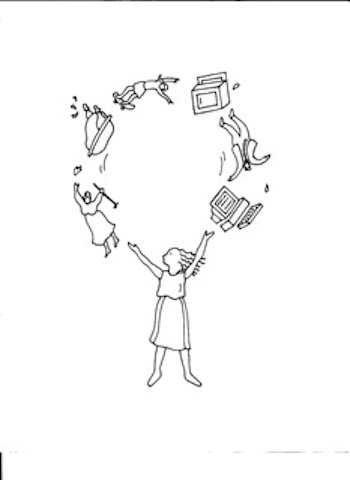
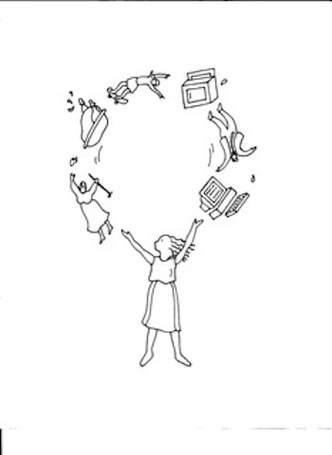
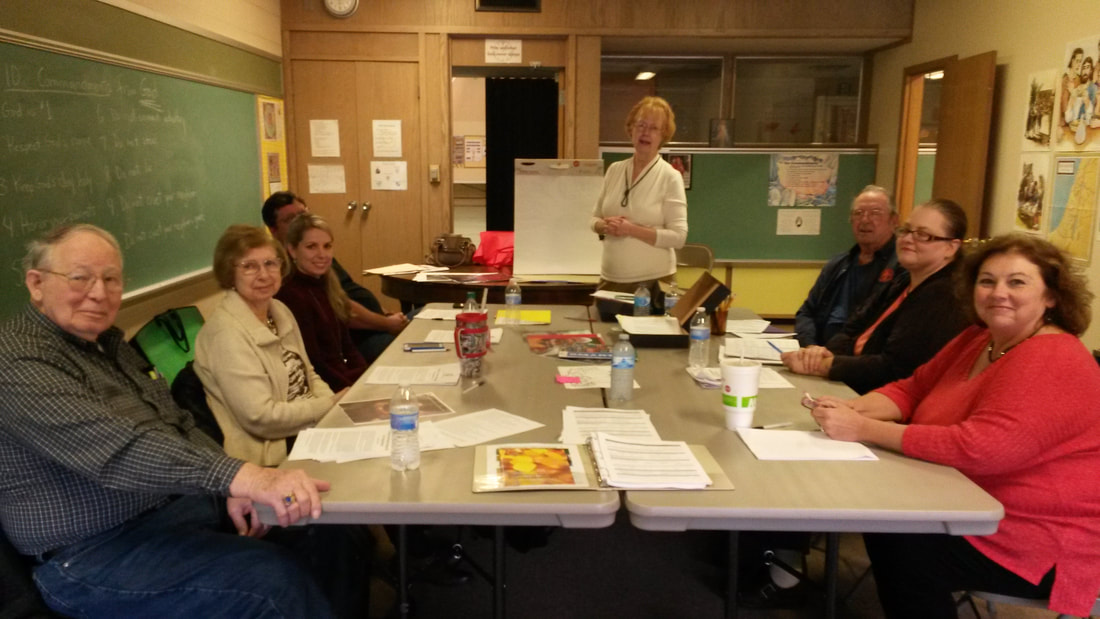
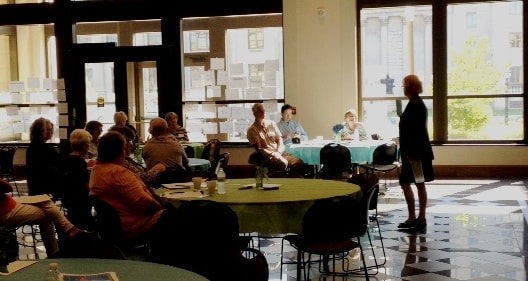
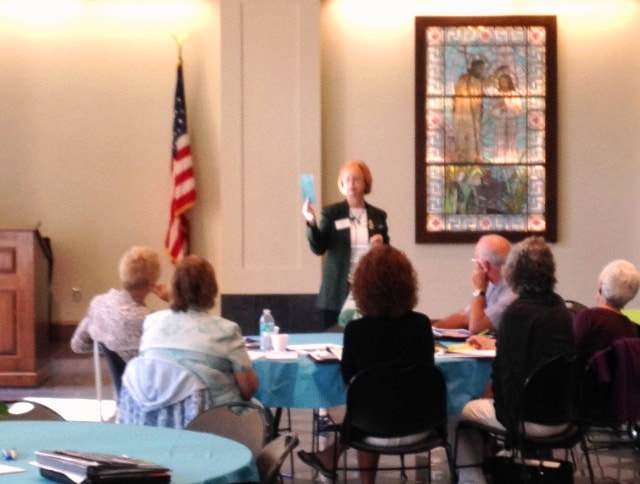




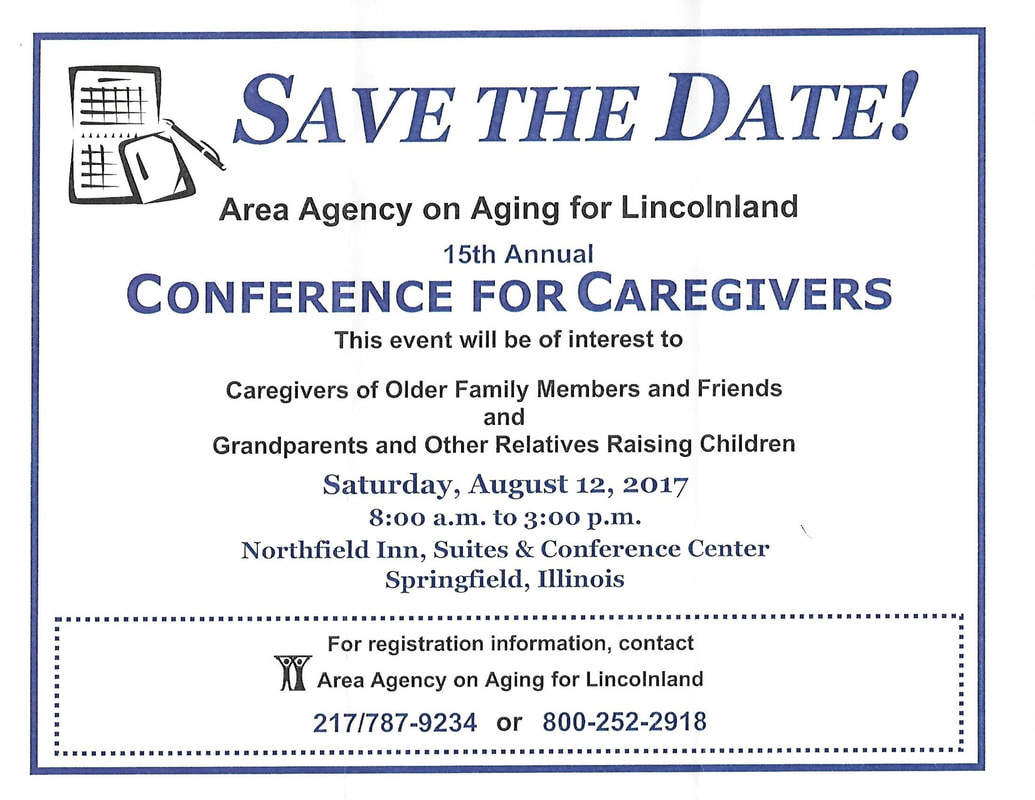
 RSS Feed
RSS Feed